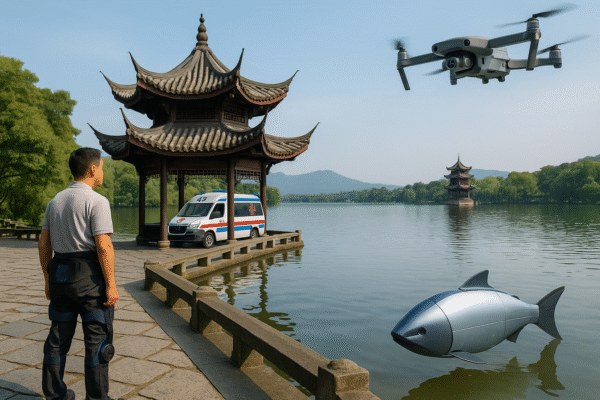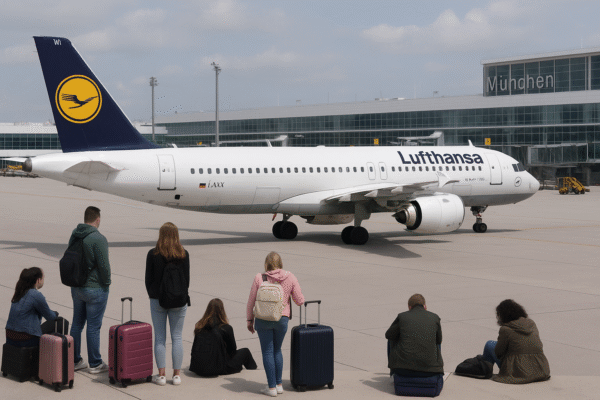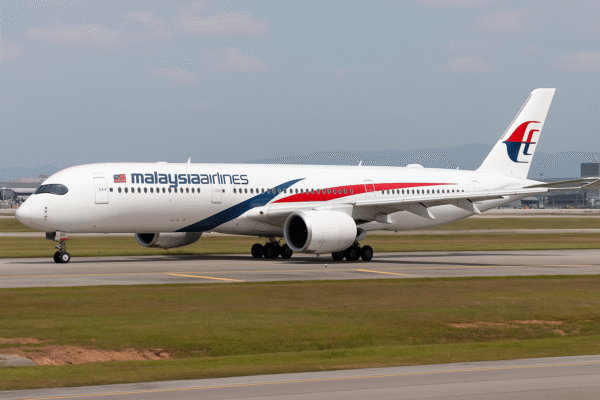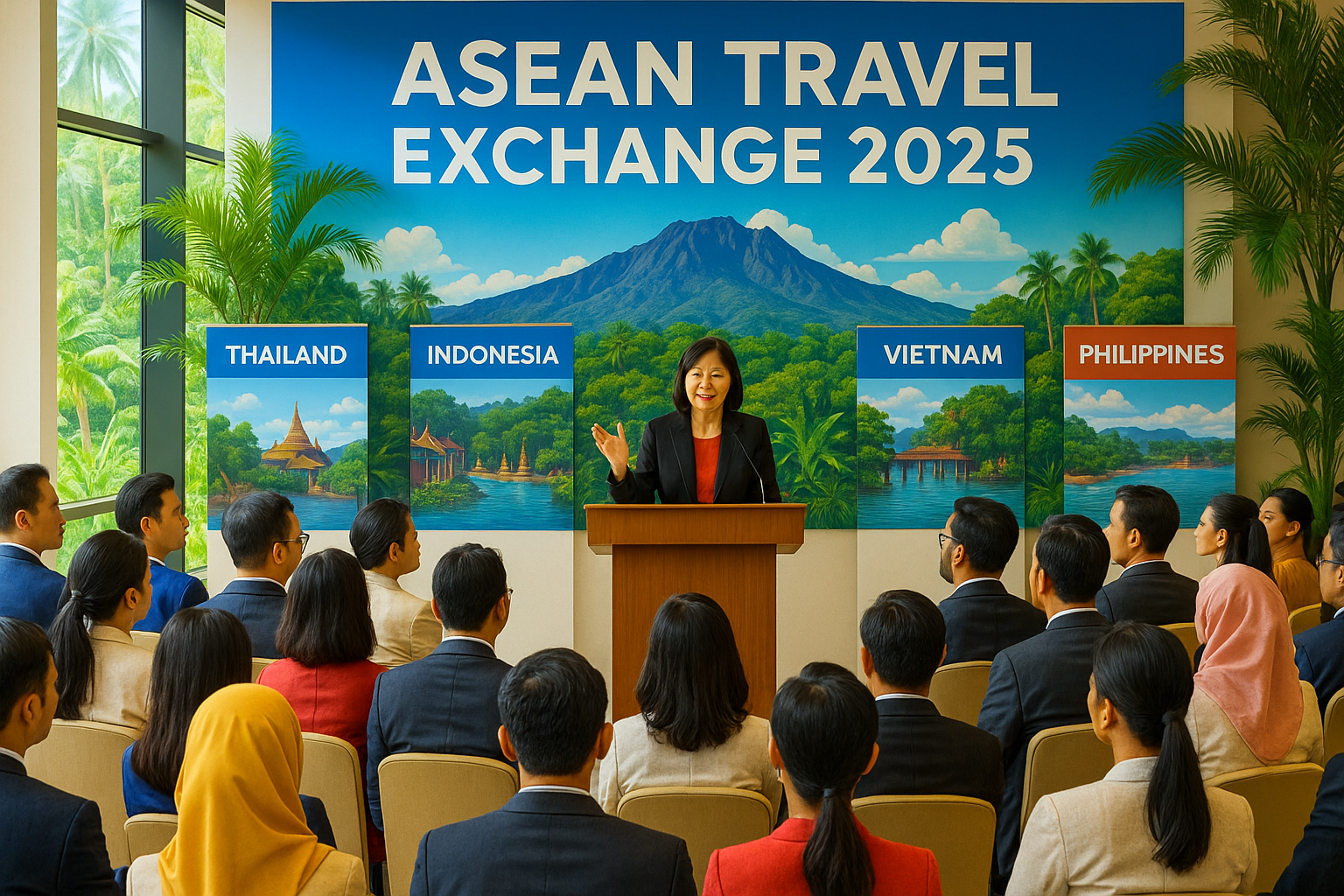Malaysia is taking a bold step forward in regional tourism leadership by calling for the ASEAN Travel Exchange (ATEX) to become a permanent annual fixture on the Southeast Asian tourism calendar. The proposal was made during the successful inauguration of ATEX 2025 in Sabah, where Malaysia’s Minister of Tourism, Culture, and Environment, Datuk Seri Christina Liew, delivered a compelling keynote to over 500 delegates from 15 nations.
As the current chair of ASEAN, Malaysia used this opportunity not only to showcase its natural and cultural richness but also to position itself as a unifier and innovator within the region’s travel ecosystem.
From Milestone to Momentum: Malaysia’s Vision for ATEX
The debut of ATEX 2025 marked a defining moment for ASEAN tourism collaboration. Hosted in Kota Kinabalu, Sabah, this first-ever regional travel exchange created a vibrant platform for dialogue, partnership, and exploration of new tourism horizons.
In her address, Minister Liew proposed that ATEX transition from a one-off gathering to an annual regional event, highlighting the benefits of sustained collaboration among ASEAN member states.
“Regular exchanges such as ATEX will allow us to seize new opportunities and develop fresh adventures for local and international travelers alike,” said Liew, earning resounding applause from attending delegates.
Sabah: The Ideal Launchpad for ASEAN’s Tourism Future
The lush landscapes and rich biodiversity of Sabah served as the perfect setting for the launch of ATEX. Liew encouraged delegates to explore Mount Kinabalu, the state’s crown jewel and a symbol of resilience and unity. She also promoted Sabah’s coastal islands, indigenous markets, and thriving cultural scene, emphasizing how the region epitomizes the best of Southeast Asia’s tourism offering.
“Sabah welcomes you with more than just beauty—it offers unforgettable experiences that reflect the soul of ASEAN,” she said.
As tourism returns post-pandemic, destinations like Sabah are gaining traction for their eco-tourism appeal, sustainable travel initiatives, and opportunities for community-based tourism.
A Showcase of ASEAN Unity
ATEX 2025 brought together major ASEAN tourism bodies, including the ASEAN Tourism Association (ASEANTA), the Federation of ASEAN Travel Associations (FATA), and the Malaysia Association of Tour and Travel Agents (MATTA). It also garnered strong support from Tourism Malaysia, the Sabah Tourism Board, and the Sabah Convention Bureau.
The collaboration was enhanced by strategic partnerships with key brands like AirAsia and Jetama Water, underscoring private sector commitment to regional travel growth.
Nigel Wong, President of MATTA, praised the event’s success and strategic value:
“The ASEAN Travel Exchange represents an excellent opportunity to deepen tourism cooperation, promote destinations, and build long-lasting partnerships.”
Beyond ASEAN: A Global Tourism Gathering
While focused on Southeast Asia, ATEX 2025 welcomed a diverse roster of international participants, reflecting global interest in the ASEAN region. Representatives from China, India, Nepal, Oman, Pakistan, and South Korea attended, opening pathways for cross-regional tourism ventures.
Minister Liew’s call for reciprocal travel initiatives among ASEAN nations reflects growing efforts to ease intra-regional travel. Closer cultural ties and seamless movement could significantly boost inbound arrivals across the bloc.
“Reciprocal visits between our ten ASEAN nations will elevate regional tourism and promote each country’s unique landscapes and heritage,” Liew emphasized.
Driving the Future: Tourism Diplomacy and Regional Integration
ATEX 2025’s success signals a maturing tourism alliance within ASEAN, where countries are prioritizing collective growth over competition. Malaysia’s leadership in promoting sustainable, inclusive, and culturally respectful tourism is aligned with ASEAN’s broader integration objectives under the 2025 Tourism Strategic Plan.
Among the dignitaries present were Datuk Josie Lai, Permanent Secretary to KePKAS; Mary Malangking, Deputy Permanent Secretary I; Eddy Krismeidi, President of ASEANTA; and Datuk Captain Fareh Mazputra, CEO of AirAsia Malaysia—representing the depth of public-private collaboration on display.
The Road Ahead: Transforming ATEX Into a Legacy
As ATEX 2025 drew to a close, discussions about its future gained momentum. Making the event an annual occurrence could usher in a new era of regional tourism diplomacy. By uniting efforts, aligning policies, and promoting shared experiences, ASEAN stands poised to become a global model of tourism integration.
Malaysia’s proactive leadership, rooted in hospitality and innovation, offers a blueprint for how regional events can drive transformational outcomes.
Conclusion
With its scenic backdrop, dynamic programming, and far-reaching policy conversations, ATEX 2025 has laid the groundwork for a more connected and resilient ASEAN tourism sector. As nations look to Malaysia’s call for continuity and collaboration, the possibility of an annual ASEAN Travel Exchange holds promise not just for the region, but for the broader global travel industry.
Sabah, as the launchpad for this bold initiative, now holds a distinguished place in ASEAN tourism history—representing both a celebration of diversity and a commitment to a unified travel future.
For more travel news like this, keep reading Global Travel Wire















